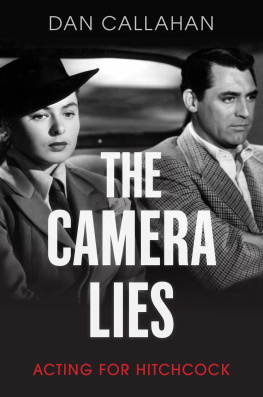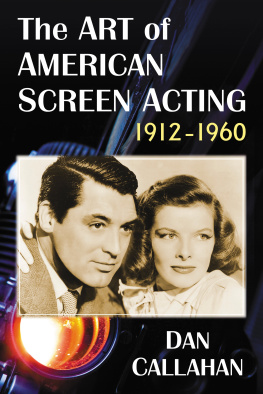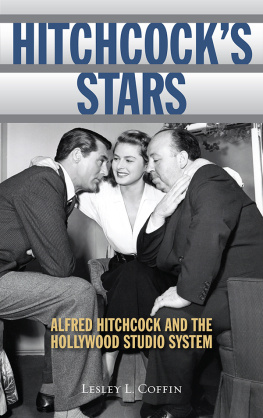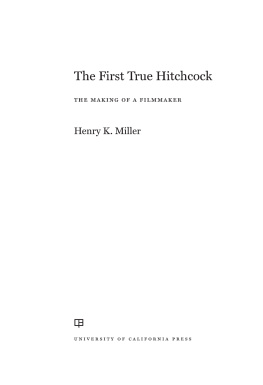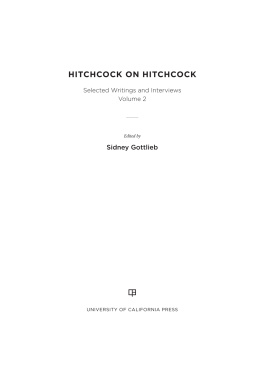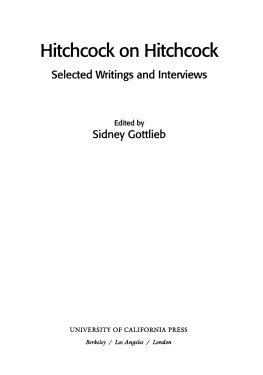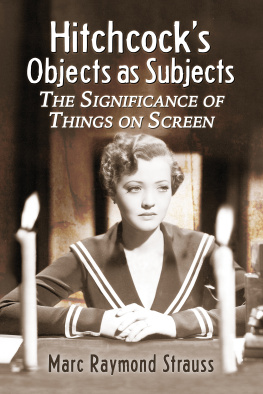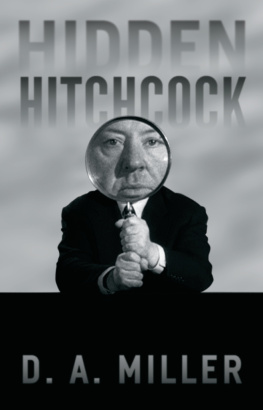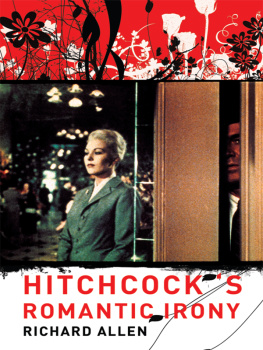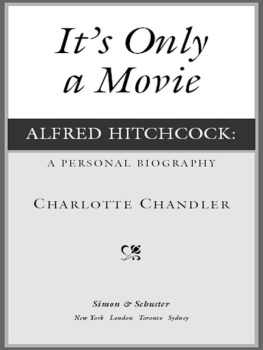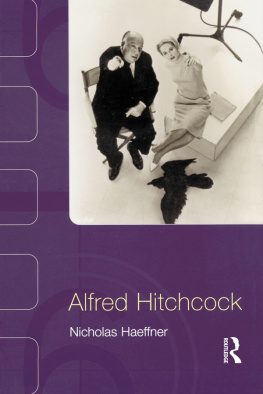The Camera Lies

Oxford University Press is a department of the University of Oxford. It furthers the Universitys objective of excellence in research, scholarship, and education by publishing worldwide. Oxford is a registered trade mark of Oxford University Press in the UK and certain other countries.
Published in the United States of America by Oxford University Press
198 Madison Avenue, New York, NY 10016, United States of America.
Oxford University Press 2020
All rights reserved. No part of this publication may be reproduced, stored in a retrieval system, or transmitted, in any form or by any means, without the prior permission in writing of Oxford University Press, or as expressly permitted by law, by license, or under terms agreed with the appropriate reproduction rights organization. Inquiries concerning reproduction outside the scope of the above should be sent to the Rights Department, Oxford University Press, at the address above.
You must not circulate this work in any other form and you must impose this same condition on any acquirer.
Library of Congress Cataloging-in-Publication Data
Names: Callahan, Dan, 1977 author.
Title: The camera lies : acting for Hitchcock / by Dan Callahan.
Description: New York, NY : Oxford University Press, [2020] |
Includes bibliographical references and index.
Identifiers: LCCN 2019048685 (print) | LCCN 2019048686 (ebook) |
ISBN 9780197515327 (hardback) | ISBN 9780197515341 (epub) | ISBN 9780197515358
Subjects: LCSH: Hitchcock, Alfred, 18991980Criticism and interpretation. |
Motion picturesProduction and directionGreat BritainHistory20th century. |
Motion picturesProduction and directionUnited StatesHistory20th century. |
Motion picture actingHistory20th century. | Motion picture actors and
actressesGreat BritainBiography. | Motion picture actors and
actressesUnited StatesBiography.
Classification: LCC PN1998.3.H58 C34 2020 (print) | LCC PN1998.3.H58 (ebook) |
DDC 791.4302/33092dc23
LC record available at https://lccn.loc.gov/2019048685
LC ebook record available at https://lccn.loc.gov/2019048686
For Aleena Khan and Aiden Khan
For every answer, I like to bring up a question. Maybe Im related to Alfred Hitchcock or maybe I got to know him too well, but I think life should be that way. I dont think you want to give all the answers, but I think every answer you do give should bring up another question, and not all questions should be answered.
Kim Novak, 1996, The Washington Post
Contents
Walt Disney had the right idea, a beaming Alfred Hitchcock told Dick Cavett on TV in 1972. If he didnt like the actors, he tore them up! On that same Cavett program, Hitchcock also went into his well-practiced, lugubrious elaboration on a famous remark he had supposedly made in the late 1920s and again in the mid-1930s.
I think at the time I was accused of calling actors cattle, Hitchcock told Cavett. I would never say such an unfeeling, rude thing about actors at all... what I probably said was that all actors should be treated like cattle. This set-up and punch line got its expected laugh from the studio audience. Hitchcock once told director Peter Bogdanovich, Actors are like children. They have to be coddled, and sometimes spanked.
On the set of Hitchcocks romantic comedy Mr. and Mrs. Smith (1941), his friend Carole Lombard rented some cattle and had her name and the names of her costars, Robert Montgomery and Gene Raymond, tied on name tags around their necks. Hitchcock very much enjoyed this gag, just as he enjoyed Lombards sense of fun and her very profane language, the free use of which was not usual for women in that period.
Lombard is an ideal Hitchcock blonde to tickle his personal fancy, or a blonde Hitchcock ideal, someone who didnt need to be menaced out of lady-like reserve. The exuberant Lombard was a liberated American woman, peppy and inventive enough to make a joke without wondering if it might backfire, and Hitchcock allows her to rule his frames just as he allowed the similarly free-spirited Tallulah Bankhead to rule Lifeboat (1944).
Bankhead too was an American, a Southern belle so liberated that her basso-voiced kicking over the traces became a camp joke. She had made exciting appearances on the London stage all through the 1920s, when Hitchcock was serving his apprenticeship in the British film industry, and he always saw her as an example of what a woman could be. Bankhead was a mile-a-minute talker, and an exhibitionist who liked to take all her clothes off as often as possible. To Hitchcock she was great fun, just as Lombard was, because she was so different from most of the women he had grown up with in his native England. She is mentioned by name, lovingly, as just Tallulah in Hitchcocks Murder! (1930), which is set in the theater world.
The patrician Grace Kelly, an American yet nearly British in her Philadelphia finishing school way, has come to be seen as the ultimate Hitchcock blonde on screen and in life, the one that got away, the ideal of ideals, the lady with a dirty mind of her own. It was no mistake that she really won Hitchcocks heart when she responded with pleasure to his habitual dirty talk. I said I heard worse things when I was in convent school, and he loved that, Kelly said. Imagine Hitchcocks own pleasure when Kelly came out with that line in such a special and lightly blasphemous way. Could Kelly have sensed that it was exactly what Hitchcock wanted to hear, in exactly that way?
Lutheran-raised Tippi Hedren, who starred in The Birds (1963) and Marnie (1964) for Hitchcock, did not respond to his hushed ribaldry, his dirty mind, or his schoolboy jokes. Hitchcock had put Hedren under personal contract, and he became obsessed by her. Famed for his self-possession and his orderliness on sets and in his life, Hitchcock was in his early sixties when he was making Marnie. And he had reached a breaking point.
Hitchcock told many people that he had only experienced sexual intercourse once in his life, with his wife, Alma, when they wanted a child in 1927. I did it with a fountain pen, Hitchcock quipped to Donald Spoto and several others. He had been raised in the most repressive possible Edwardian atmosphere and had been taught by Jesuit priests. He had always used food as reassurance, and his weight both protected him and closed him off.
Hitchcock vacillated between feeling superior to others when it came to sex and longing for it himself, and on his sets he constantly told naughty stories that had the ring of the schoolyard about them. They were the heavy-handed, inexact stories and jokes of an inexperienced boy who became an old man without ever having had the kind of sexual play and knowledge that many boys have enjoyed before the age of twenty. And so in his early sixties, this lifelong pressure finally became too much for Hitchcock to handle, and he behaved very badly.
Hitchcock pitted Hedren and Diane Baker against each other on the Marnie set at least partly because they were enemies in the movie and because Bakers character is a romantic rival of Hedrens character. Elia Kazan was noted and even celebrated for this kind of psychological manipulation on his sets, but of course there is a gender bias at work here, or a bias of desire. When Hitchcock is faced with wooden playing by John Gavin, his second male lead in

